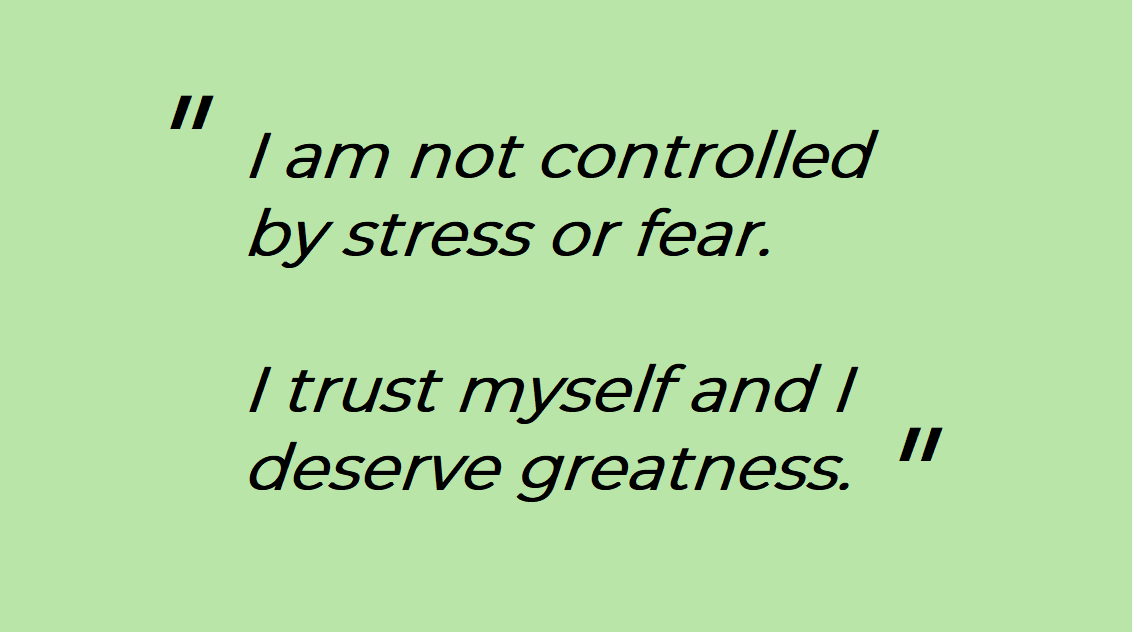Some people may think online programs are easier than on-campus ones, but there are many challenges for the online student to overcome before, during, and after they receive their degree. Online degrees were made for individuals that lead busy lives. These are students who have to work twice as hard to achieve the same results. This article will address how to get a job after your online degree. We will explain the necessary steps to landing your first professional job after an online degree.
Professional Mindset: Behavior and Attitude
The mindset of a professional is different from that of a student, and being stuck in the latter makes it harder to get the job of your dreams. In this section, we discuss habits that the online student should adopt prior to an interview.
Mental fitness is a prime factor in your ability to land a job after you complete your online degree. This does not mean doing puzzles or taking ridiculous tests that are irrelevant to your profession. In fact, we are talking about testing yourself in your professional field before setting foot in the job of your dreams through these four habits that you should start now:
1. Continue Learning
Read at least one article per day related to your professional field of choice and always be open to learning something new about your future career. This will help you stay up-to-date on any changes to your field and boost your overall confidence.
2. Research People in Your Field
Spend at least 10-15 minutes per day talking to people in your future dream career field. Use a search engine or a networking site, such as LinkedIn, to find other people that already have careers in your field of choice. Reach out to them for pointers or insight in their current career.
*Note: Keep your messages short and show them that you are passionate about learning from them. If they do not wish to help you, be polite, thank them for their time and move on to the next person.
3. Think Like a Professional.
Online students have a lot more freedom and flexibility when it comes to their time than traditional on-campus students. It is great for those of us who work full time, have children, or other pressing responsibilities that require odd hours, but this can cripple your internal clock when going into a professional career and make it difficult for the online student to adjust to a company’s set hours. Start training your sleep patterns now to make that transition easier when you land that first job. Set an alarm 1 hour before bedtime, and prepare yourself for sleep at the same time every night.
4. Build Your Confidence
Online students do not have the perks of interacting with their peers and professors in person. So, it is important to find a safe way to boost your confidence when speaking to people. When you wake up in the morning and look at yourself in the mirror, practice talking to yourself. As silly as it may sound, the mirror technique is used by successful people every day to boost their confidence. Try looking at yourself and saying the following:

Talking to yourself in the mirror with affirmation statements like the example above will also help you to prepare for a video interview, discussed further in “What Should They See.”
By performing these three habits every day, you will begin a smoother transition from online student to professional.
Networking
Networking for online students has many challenges that a traditional on-campus student rarely encounters. This section discusses three of these challenges and how to overcome them like a professional.
1. Networking Events
Universities and colleges have additional resources for on-campus students that online students can’t access. Scheduled networking events are one of those resources. Online students rarely can attend one without making their own arrangements for a specific event. The primary solution to this is signing up for networking sites like Meetup.com or LinkedIn. Both sites allow the online student to find individuals with similar career paths and local networking events.
2. Is It Worth It?
Another challenge is whether a networking event is worth your time and effort? Honestly, you never really know until you get there, but there are questions you can ask yourself to reduce the likelihood of a bad event. Ask yourself the following:
- Will there be speakers at the event?
- Will I have any interest in the topic(s)?
- Do the topics correlate with my future career path?
- Is the event free or affordable?
- Are food/snacks provided at the event?
If you answered “yes” to all of these questions, then the event will have a higher chance of success for you. The last question may seem a little odd, but there are two things that will bring people together for conversation. Good music and food.
3. Talking the Talk
Online students typically struggle with networking in person, but the more face time that you have with a person, the more likely you are to make a valuable connection. Whether you are trying to network in person or online, use the IQS method:
INTRODUCTION
This will be the hardest part of networking for many online students, but you should always introduce yourself to the person you are addressing. This begins with a simple “Hello, my name is [insert first and last name] and I am from [insert hometown]. How are you today”. Try not to give too much away about yourself in the beginning or your target audience will think you are trying to sell them something, especially during an online interaction. Wait for them to introduce themselves.
QUESTIONS
Listen to them and begin asking questions that pertain to their response, or simply ask “what is your specialty?” This exchange will spark conversation between you and the other person if you continue to listen and take interest in what they are telling you. One thing to remember is that you never know who or what you will need in the future.
SALUTATION
When exiting a conversation, make sure to tell them that it was a pleasure talking to them and provide them with your contact information.
Congratulations, you have successfully landed your first connection. If you are going to an in-person networking event, ask a friend to tag along and see who can get the most positive connections that day or challenge yourself to get a specific number of connections in a single event.
How to Search for the Right Job
Searching for a job is tedious on its own, but finding the right fit for you after getting an online degree can be overwhelming. This section discusses 3 steps on how to find jobs that fit your career path right now or in the future.
1. What Do You Want?
The first part to finding the right job for you is determining what you want. It is best to write your needs and wants on paper so you can refer back to it later. Begin by asking yourself the following questions:
- Where do I see myself in a year? 5 years? 10 years?
- How much money do I want to make?
- What fringe benefits do I expect to have? (401k, insurances, vacation time, etc.)
- Where do I want to live?
- How much is the cost of living there?
These will help you figure out what you expect from your career and prepares you for questions you may need to ask your potential employer before accepting a job offer.
2. What Are You Good At?
Just like writing your needs and wants, you should note your skills and talents. This list should not only be written down for you to look over when searching for jobs, but provides you with answers to interview questions and gives you a confidence boost. There are two ways you should compile your list of skills and talents:
- First, write down the things that you believe are your strengths. Then write down your weaknesses. Try to refer to your weaknesses list to help you understand what you need to improve on rather than letting it discourage you from trying.
- Second, ask your friends and family to tell you candidly what they think are your strengths and weaknesses. This will give you an external perspective and may add more items to your list than you would have come up with on your own. Start valuing both your strengths and weaknesses now so that you can effectively cope with constructive criticism later.
3. Job Hunting 101
The job search can begin now that you have your lists of wants, needs, strengths, and weaknesses. Most companies and organizations post jobs online now, but the sea of potential opportunities can overwhelm anyone. Check out some of these sites for job opportunities:
- LinkedIn.com
- Indeed.com
- Monster.com
- CareerBuilder.com
- Glassdoor.com
- Snagajob.com
- ZipRecruiter.com
Use your skills and talents list to pinpoint jobs that are looking for your specific strengths. Read the qualifications and job duties thoroughly before applying. Make sure that this coincides with your list of wants and needs. Some job postings will offer a salary/wage range. Payscale.com allows you to enter your experience and expertise into their system to find out how much you are worth. Another good resource for comparing salaries and company reviews on job postings is Glassdoor.com.
Once you find a good fit, make sure to apply with the company’s application, and attach your resume and cover letter that specifies why you are a great candidate for them.
What Should They See: Wardrobe and Attire
Whether you are at going to a networking event or preparing for a video call interview, there are three things you need to know about wardrobe and attire before talking to other professionals.
1. Business Professional vs Business Casual
There are a few differences between business professional and business casual. Some networking events may require one or the other, but if there is no specification, business casual is usually the go-to attire. Business casual consists of khakis, slacks, a skirt, or a modest colored dress; button up shirt, or modest colored blouse; and nice dress shoes with no scuff marks or tears. On the other hand, business professional consists of a suit (black, brown, or gray slacks/skirt with matching blazer and tie) or nice single colored dress; and nice dress shoes with no scuff marks or tears. Business professional is also referred to as being dressed “to the nine” or “to perfection”.
2. Laundry Lingo
Being a professional does not necessarily have to be expensive, but you must keep up your image before and after you are hired. You should never wear business casual or business professional attire that is wrinkled, torn, or stained. Most business attire requires dry clean only, meaning that you should not put these items in the washer. If you accidentally wash them, you may have to take them to a dry-cleaning professional to have it properly cleaned. Fabric softeners have been known to cause oily spots or stains on dry clean only attire and are not recommended. Additionally, your shoes should never appear dirty or torn. If you have scuff marks on your shoes, you should always have shoe shine on hand. If clothing is not repairable, remove the item(s) from your wardrobe so you are not tempted to wear them.
3. Video Call Interviews
Video call interviews should be treated just like an in-person interview. You should always be dressed to the nines for a job interview, even if you are applying at the local fast food restaurant. This will instantly let the employer know that you are serious and professional. Specifically, for video call interviews, consider taking your camera to a well-lit and quiet area. Let others know that you are about to have an interview and that you need to be alone. Also, look at the room around you and make sure that clutter or dirty laundry is not lingering in the background. Not only would a messy room be embarrassing for you, but it will tell the employer that you are unorganized.
Remember that you are trying to catch the employer’s attention and you want to have as few distractions as possible. Online programs can be a struggle, and it took you a lot of preparation and time to get where you are now. Give yourself the advantage by showing that you are serious, knowledgeable, and professional.





